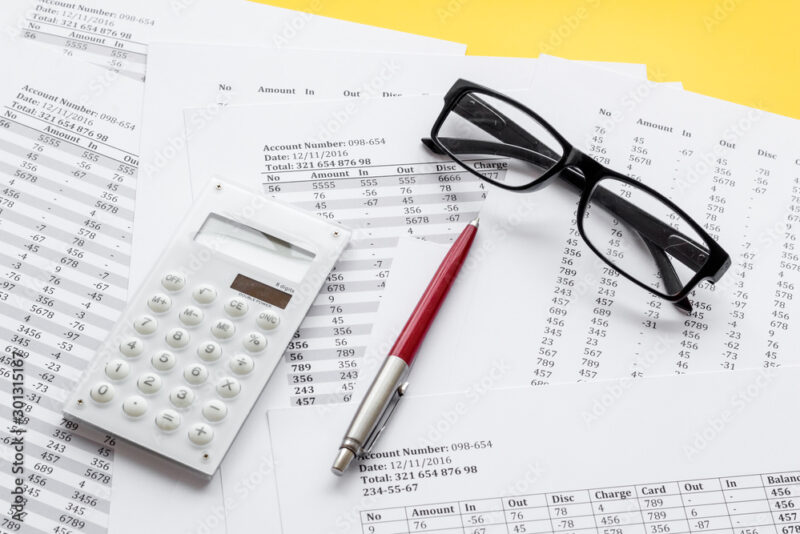April is here and while for many of us the New Year officially began in January, in financial terms, April 6th marks the beginning of the new financial year. It’s relevant for many of us because it is a great time to start new habits which will fit neatly into the many financial and accounting systems that we and the world around us run by.
Here are a few examples of simple habits that will make your life easier, free up time and, quite possibly, improve your finances.
Habit One: Get paperwork in as soon as you can.
A key example is Self Assessment tax returns. People who have good and healthy money habits will be ready and willing to submit their tax return for 6th April 2017 to 5th April 2018 in April, as opposed to the 758,000 who submitted last year’s tax return on the final day possible: January 31st 2018. Another 745,500 missed the deadline altogether, running the risk of a £100 fine by HMRC.
Having systems in place where paperwork is dealt with promptly not only frees up worry as deadlines approach, it also means that you avoid missing opportunities and possible financial losses as a result of late submission.
Habit Two: Have simple and effective filing systems — and use them!
What would you pay to have two and a half extra days in your life every year? That apparently is the amount of time we spend looking for lost things. And ironically, the reason that we don’t have proper systems in place for the things we use and need is usually because we feel we don’t have time. It’s certainly one of the reasons that things such as filing tax returns or keeping tabs on our spending habits are harder if the information we need to do that is scattered in lost envelopes or crumpled receipts at the bottom of pockets or bags.
Spending just half a day where you organise a filing system for the things you tend to lose will make your life less stressful and give you time back for more important things. Have one set of clearly marked files or boxes for such as fuel VAT receipts and or school or vet paperwork. For keys, just have a specific place where you always put your keys or driving glasses as soon as you come in the door. There are numerous ways that using good filing systems will save you money too – for example, being able to quickly pull out the information on how much your car insurance cost last year will make a price comparison and switch so much simpler.
Habit Three: Throw things away that you don’t need, as soon as you can
In a world where we are trying to move away from a disposable culture of throwaway plastic this may seem off-message but actually having and keeping fewer ‘things’ can actually help us to be more sustainable – and it’s also good for our health and overall wellbeing. There are a raft of studies which show that having cluttered spaces in the places where we live, work and spend time generally affects our physical and mental wellbeing. Having cluttered spaces can also cost money in fairly straightforward ways. For example, you may end up replacing items you already own but have lost, or paying late fees because you can’t find the credit card bill details you know you put ‘somewhere’ , or you don’t eat food you have bought because you don’t find it before its expiration date. Getting into the habit of throwing away or recycling things that you come across that you know will end up sitting in a box somewhere gathering dust is a good habit to get into. For example, recycle junk mail, envelopes or extra bits of paper as part of the process of opening the letters, or putting clothes that you come across that you haven’t worn for over a year straight into the recycling box as soon as you come across them. You can also spend just ten to 15 minutes a week clearing out a small part of your home. Start with your Sock Draw by Vicky Silverthorn is one of those books that offers really good practical help and inspiration to get you started.
Habit Four: Budget your time each week and day
No-one wants to be stuck with a rigid, regimental set of activities and time limits each day, but spending about five minutes each morning setting out the things that you need to do, and marking out time for important things that otherwise get sidelined — such as playing football with your son, or writing a letter to someone who’s feeling low — makes your life richer in many ways. Allocating specific time that can’t be interrupted for specific tasks also means you will get those things done more quickly. Studies show that trying to multitask can slow us down by as much as 40%. And leave free time so you don’t have constant deadlines but give yourself some leeway for spontaneity.
While making a plan for the day and the week might feel like you’re restricting spontaneity and freedom, in a world where we can lose hours to social media or checking emails too often, planning in time so those tasks only get so much time can actually give us hours back and help us to make the most of the free time we have. And guess what – having more free time also means we can order those gifts we’d have paid twice as much for last minute a little bit earlier for half the price, or cook something healthy and delicious from scratch instead of grabbing a more expensive takeaway on the way home.



